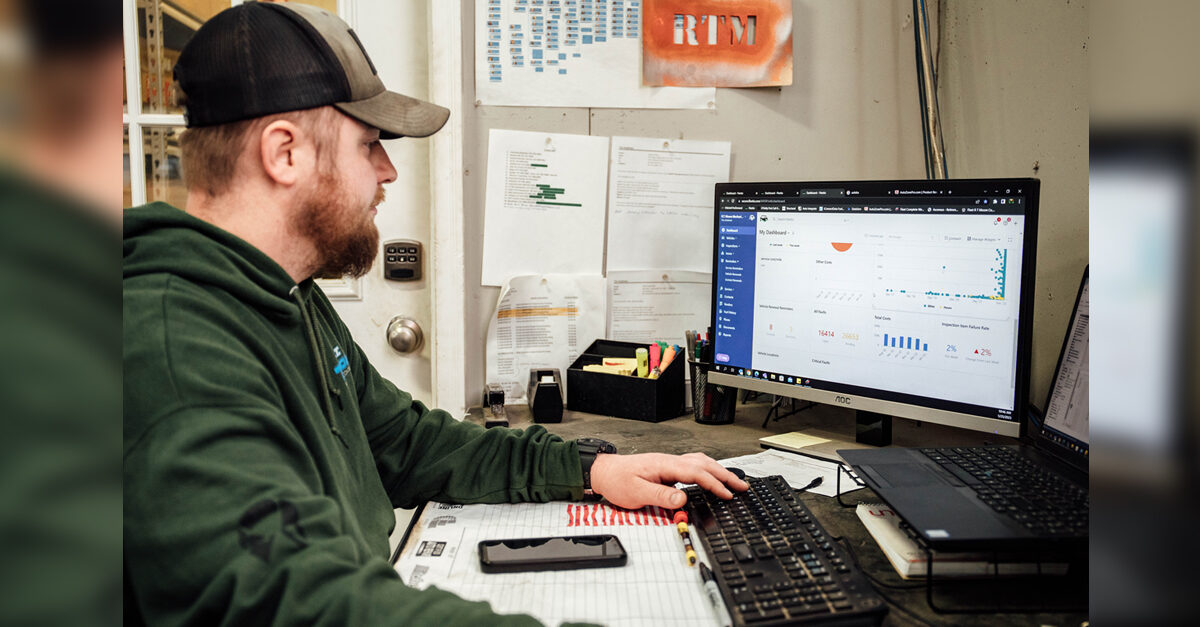When you think of fleet management software (FMS), no doubt you think of a software platform geared toward vehicles. However, any business also using equipment, personal protective equipment (PPE), and even supplies can benefit from FMS. This is especially true with integrated FMS, which allows users to connect multiple business software platforms, including accounting/financial, telematics, GPS, inventory, and warehouse management.
One of the challenges in running a commercial cleaning or building services company is efficiently managing all the issues that surface during regular business operations. If your crew uses company vehicles or takes supplies or equipment to a jobsite, managing those assets is also high priority. From high-value assets like vehicles and equipment to high-use items like cleaning solutions, managing asset maintenance and gaining insights into the quality of products used is crucial to keeping costs low and clients happy.
Considering the increasing cost of supplies and materials along with the push for sustainability and green products, it’s important to understand value versus cost for all products used, and to track usage per job to find discrepancies. Likewise, new and used vehicle and equipment prices are rising at a steady rate, making it imperative to extend asset lifecycles across the board.
Catch issues early with inspections
Cleaning and building services companies can use FMS with a high level of customizability to track and manage their assets. FMS digital inspections reveal issues in real time to minimize downtime and reduce service costs. Managers can customize inspections to meet the requirements of any vehicle, equipment, and PPE type, as well as help track supplies usage.
“I treat [FMS] as more of an asset management system than simply a fleet management tool,” said Jenniffer Rothschild, an asset manager with mechanical contractor JW Danforth, which services buildings in a variety of industries including healthcare, schools, municipal, and commercial. “We can see how often we are sending equipment to a site, which gives us the proof to decide if we need to take action.”
Managers can use FMS to create vehicle and equipment inspection checklists with detailed instructions for their crews. Once crews have finished their inspections, they can attach images and documents and write comments on the checklist through a mobile app. In the case of a failed inspection, the app will notify managers in real time so they can act immediately.
“It was easy to get pencil-whipped. It took technicians too long to complete vehicle inspections that were unclear and unreliable, and manual data entry took hours. It wasn’t an efficient process,” said Steve Curtin, national fleet supervisor at carpet cleaning company Stanley Steemer, describing the inspection process without FMS. “Being able to customize vehicle inspection forms has been a very simple process. We’re currently building inspection checklists for some of our more expensive equipment which requires specific inspection criteria and instructions for techs.”
Realize cost savings with tracking
Tracking supply usage is a great way to understand how much of specific product crews are using across job types. Usage data will help you determine if switching to a lower-cost product to save money would be efficient, or if it would cost you more money in the long run because you’d have to use more of the product due to its lower quality.
For more granular data regarding supplies and materials inventory and usage, businesses can use inspections to track product information such as part numbers, starting quantity, job quantity, and job details (job code, invoice number and client name). They can also track product issues and learn who last used the product and when. This data will help businesses improve usage accountability and determine the presence and source of any discrepancies.
Whether your aim is to reduce service costs for vehicles and equipment, improve safety and PPE maintenance and efficacy, or reduce how much you spend on supplies, using customizable, digital inspection in FMS can move the needle closer to your goal.



